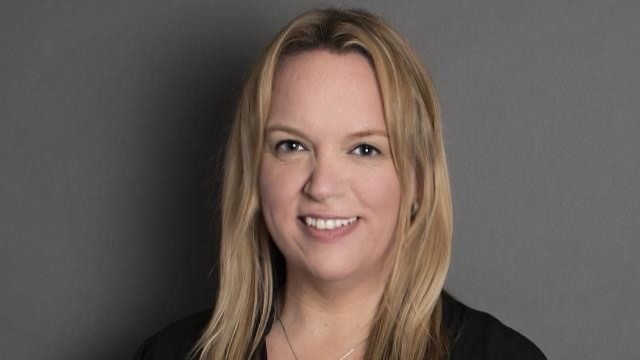Q&A: How Social Value Can Boost Your Projects

Bird & Bird is an international law firm with over 30 offices in Europe, North America, the Middle East, Asia Pacific, and Africa working across multiple sectors and supporting organisations being changed by the digital world or those leading that change.
Lorraine joined the firm in 2020 to build Bird & Bird’s Legal Project Delivery function drawing on her private practice and in house experience. She started her law firm journey as a PA and made a career move into legal project management 15 years ago when her then employer identified a need for a different kind of business support.
Lorraine now heads up a team of 12 legal project managers and process improvement specialists, working alongside lawyers and offering standalone support to clients seeking project and process expertise.
Bird & Bird is a Corporate Partner of the Association for Project Management (APM), the chartered membership organisation for the project management profession, which is currently running a campaign – Futures Lives and Landscapes – focusing on social benefit in projects.
Lorraine talks about social value and how it is incorporated into projects at Bird & Bird.
What kind of social value/benefits does Bird & Bird create through its projects? Can you provide any examples?
Social benefit is becoming an increasingly important focus for projects carried out both externally and internally at Bird & Bird and is considered from the outset. An early stage of the Project Delivery Team engagement is the Discovery Session where we discuss with the client the key drivers of the project, priorities, goals and what they are trying to achieve – all elements that feed into scoping out the project and so factoring in social value early on in the process is important.
When a client hasn’t fully considered social benefit from the outset, we are able to help guide and support them on key considerations and how these will be achieved.
A current hot topic right now is environmental sustainability and awareness, which is something Bird & Bird consider a key part of our strategy. We now have a sustainability manager, Lauren Nethercleft, and we work closely with her to ensure that we are building an environmental perspective into projects, challenging both ourselves as a firm and clients in this area.
This can include helping us reduce carbon footprint, travelling less, working smarter to reduce waste and recruiting for jobs locally. Environmental, social, and economic sustainability are core strategic initiatives for the firm.
An example of a recent project we’ve worked on incorporating social benefit is with a gaming company. We worked with the client on data privacy advice and the protection of a wide range of people including the safeguarding of young people who are using the games made by the company. We also provided the client with a knowledge bank, training, and workshops on matters of data privacy enabling them to consider social benefit when managing their own projects across the business.
How does Bird & Bird incorporate social value into its projects? Is it planned from the start, or are opportunities identified as the project progresses?
Our aim is to consider social value from the start of a project, but we work in a continuous improvement environment where the project managers and process design specialists ask questions and regularly challenge the approach as the project evolves to ensure that social benefit is considered at all stages.
We can help to guide clients along the way and particularly during that discovery phase in how social value can be incorporated, and during risk management where the impact might not just be on time and cost but also what the social impact will be.
The Project Delivery team consults with the Lauren on best practice on how to build environmental sustainability into projects. We work with some of the world’s most cutting-edge companies which gives us first-hand insight into the innovative approaches that create a new blueprint for sustainable living, so where possible we apply this to our own firm too.
Has it always been important to Bird & Bird’s project teams to generate social value, or is this a relatively new goal?
I’ve seen the emphasis on social value become increasingly important for our clients since I joined the firm three years ago. It is an area which is a key focus particularly in the environmental space and as a firm we are currently setting our Net Zero targets and considering how these are included in our day-to-day operations. More and more our clients are interested to know what we are doing in this space and what we are looking to achieve.
Also, as part of our continuous improvement review cycle, social impact is an element which feeds into the more traditional project metrics in terms of how projects are delivered and the social value they can achieve.
Project managers who work outside the legal sector may not be able to deliver the exact same types of social benefit as Bird & Bird. In your opinion, how can PMs in other sectors identify the types of social benefit that are achievable for them?
I agree, types of social benefit that are considered a priority to one sector such as legal may be different those in another such as in construction or engineering.
However, how to go about identifying the types of social benefit that are achievable will be similar, for example using the SMART objectives framework can help determine what social benefit is possible.
It doesn’t need to be huge changes to make a difference to social benefit of the project, introducing smaller more manageable adjustments can all add value.
A recent APM survey recently found that most project managers in the UK are worried about skills gaps. In your opinion, what skills should project team leaders or business leaders focus on developing to support future delivery of social benefits through their projects?
Two of the key skills which I think are vital in developing across project teams are communication and change management. In terms of communication, this includes both listening and talking/articulating. It is a fundamental skill for any project manager to be able to listen and ask the right questions and have a constructive challenging conversation with clients and stakeholders to really understand what they want to achieve and why.
Change management is part of project management but in my opinion, it is a separate and specialised skill set. It might be necessary for the team to bring in someone with change management experience and PMs shouldn’t be afraid of asking for help in this area where the capability might not be available within the team.
Do you think there are enough project professionals in the talent pipeline to sustain future delivery of social benefit projects in the legal profession?
I think there is always going to be a need for more project managers with so much change happening across different industries and as the profession evolves.
Project management in the legal sector is still a relatively new concept, especially in jurisdictions outside of the UK and in comparison to other sectors such as construction and engineering, but it is evolving and there are now project management teams in many law firms with talented project managers in high demand.
It’s important to keep the talent pipeline moving and evolving, and not just to recruit from within the profession, but from a wide range of professional backgrounds. The project delivery team here at Bird & Bird is diverse with a mix of backgrounds and transferable skills. We also like to recruit talent from within the firm where possible, creating an alternative career path, for example one of our project managers moved internally from her role as a PA at Bird & Bird.
Universities, apprenticeships, and graduate schemes are also all excellent pools of talent which the profession can dip into, with so many more opportunities available for those seeking a career in project management.




